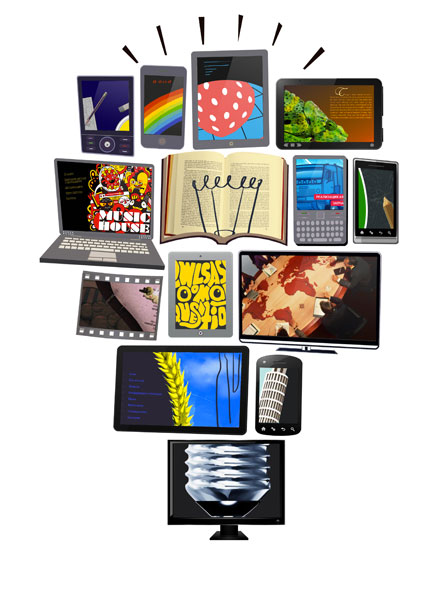Coming to a screen near you
Traditional publishers are taking unusual steps as they seek to make the move into the digital age where the printed page is no longer all the rage, as Zhang Yuchen reports.
As China's digital publishing industry continues to grow, publishers are looking for new ways of obtaining and telling stories. Gone are the days when authors simply penned their tales, presented them to the publisher houses and hoped for the best.
 |
In addition, several of China's best-known, long-established publishers are using the digital arena as a shop window for their products in the hope of boosting sales of books in brick and mortar stores.
In September, one of China's oldest publishing houses, the 101-year-old Zhonghua Book Co, entered the world of multimedia publishing by instigating a poetry contest that targeted mobile phone users.
The format was simple: Applicants simply had to compose an ode using the rigid formulas of classical Chinese poetry and send the resulting poem to Zhonghua via a text message. Over a period of four months, 43 million wannabe poets texted their work, either as original content for the competition or as messages to friends, who in turn forwarded the poem to other recipients. Software containing a template for the poem and the rules of composition was downloaded more than 50,000 times in one month.
By the end of the competition, the number of posts and reposts on mobile devices totaled 129 million, a huge number given that Zhonghua's biggest-selling physical book, Thoughts on the Analects of Confucius sold 320,000 copies.
"The competition was our attempt to popularize ancient Chinese literature in the modern age and to market the brand of our publishing house, which is famous for classical Chinese texts," said Bao Yan, Zhonghua's president.
It was the first time that Bao and her team had attempted to promote and develop the physical market potential of classical Chinese literature via the digital medium. Zhonghua estimated the revenue from the competition at 9 million yuan ($1.5 million), although the publisher had to split that sum with the telecom companies and its other partners.





















